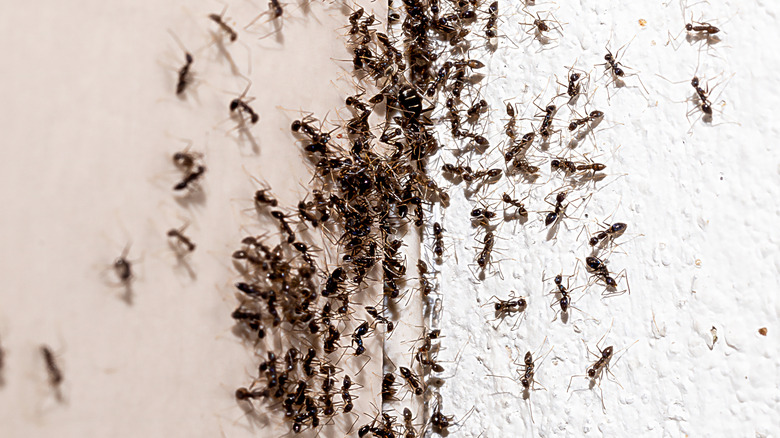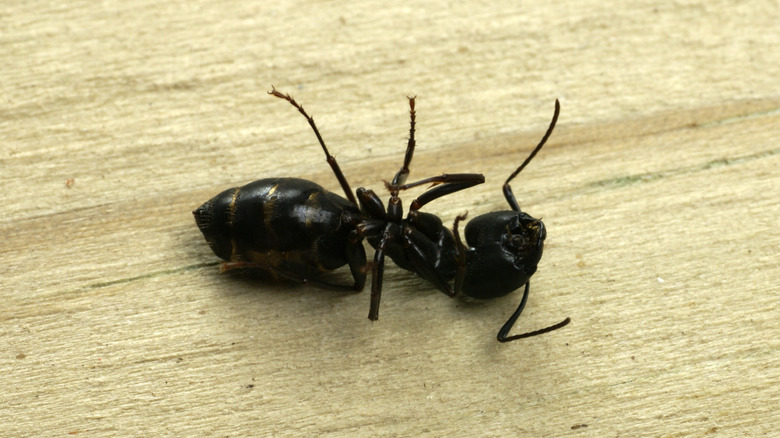Does Spraying Ants Just Make Them Multiply? What To Know Before Trying
Ants in the yard can be a mixed blessing. You don't want them near the patio or deck if you're eating, but they don't usually damage plants, they do eat some pests, and they can help aerate the soil. So in general, you should avoid killing ants in your garden whenever possible. Ants in the house are another matter, though, and definitely something you could do without. There are a number of things that make it easy for them to wander in, so you'll probably want to deal with those as a first step.
If they do get in, then whether it is just a small outbreak or you've got a full-scale infestation, grabbing some kind of ant killer spray is a common response. However, while it may be a short-term solution — killing the ants you can see — it won't penetrate the nest or stop the queen from breeding. In fact, it can make matters worse because some of the ants might leave the existing nest and start multiplying somewhere else.
That may not be the end of your ant problems, either, but before you can tackle them properly, it helps to understand a bit about ant behavior. That should point us toward more effective solutions for getting rid of them.
Budding, the pheromone problem, and the best ways to stop ants multiplying.
Many of the types of ants that are common in the U.S. multiply by budding, which is when a breeding queen and part of the colony break away and start a new nest. It can happen naturally, but some insecticide sprays also trigger it. Suddenly you have at least two nests to deal with, not just one.
Ants can also send signals to each other if they feel threatened or attacked using what are called alarm pheromones. They can send these even while the spray is killing them. As a result, the existing nest could be evacuated, and the ants will scatter and establish any number of new nests, once again multiplying the problem.
So according to experts, spraying is not one of the best ways to get rid of ants. Instead, the focus should be on reducing the number of places where they can get into the house, making sure food isn't left in unsealed containers, and using baits that are carried back into the nest by the ants where they can actually kill the queen. That said, it will depend on the severity of the invasion. If the situation is getting out of control, it's probably a good idea to call in a licensed pest control specialist.

